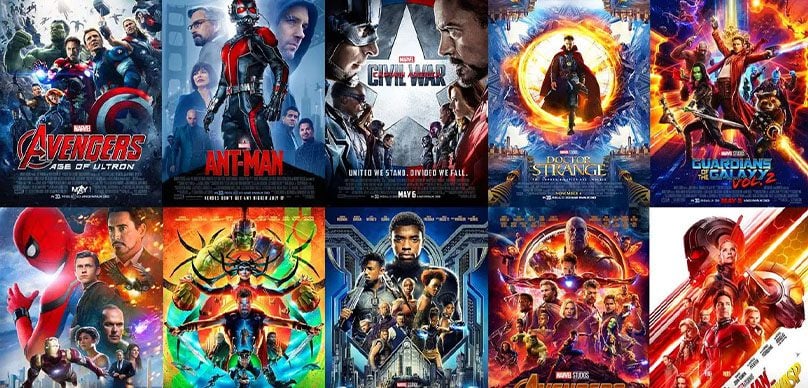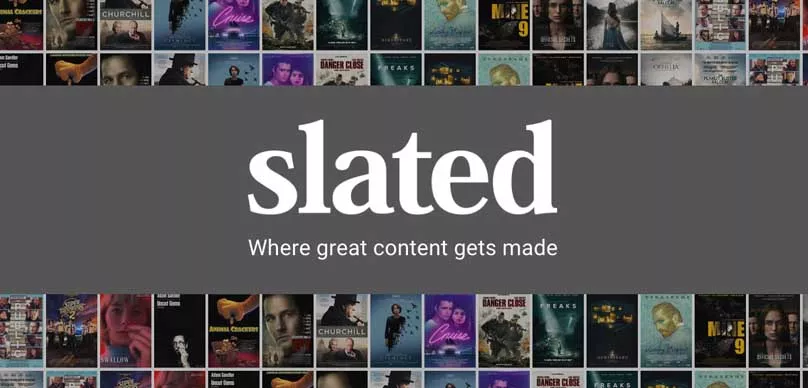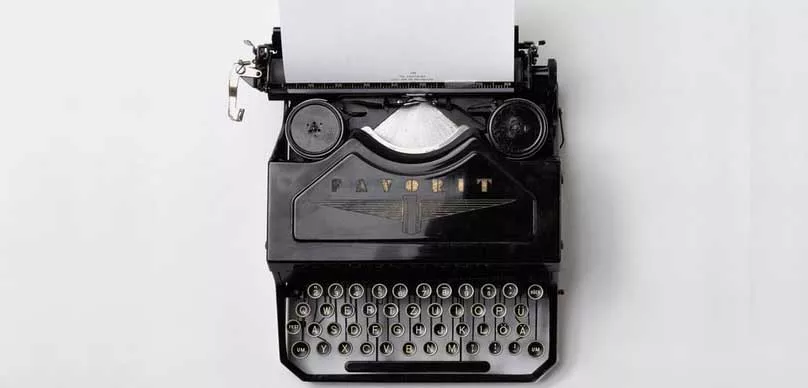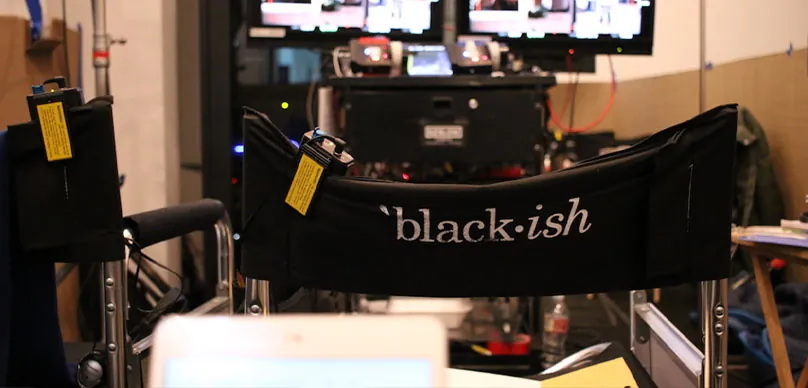OK, I wanted to start off the new year on the right foot. Over the course of my career, I’ve seen so many filmmakers obsess over film gear, to a paralyzing end. They focused so much on gear that they never make actual films.
No one is saying you shouldn’t keep up to date on the latest film gear. You need gear, without it you can’t make films but cameras, lenses, drones, and grip equipment are just tools.
Do you think Chris Nolan, Martin Scorsese, or Quentin Tarantino obsessed about film gear? No. They learned to tell stories first and then grabbed the tools available to them to tell those stories. Sure now they play with all the latest toys but I can guarantee you Quentin Tarantino worked on The Hateful Eight script first before he thought of shooting it on 70mm.
You can pay $1 for a hammer or $100 but both will put the nail in the wood. It’s the master carpenter who practiced and took the time to learn how to hit that nail just right, with one swing, that is the craftsman.
Don’t rely so heavily on film gear to tell your stories, because gear is not the storyteller, you the filmmaker are. A good filmmaker tells a story with a RED Dragon or an iPhone as this year’s Sundance Film Festival Winner ‘Tangerine‘ proved.
Don’t believe the hype from all the gear companies having you run out and upgrade your cameras or lenses every time they release something new. Stop obsessing over the gear and start making movies! Take a listen to hear my argument against this “gear porn” epidemic.
Learn Your Craft & Stop Worshipping Film Gear
You may be wondering why this article is called Learn Your Craft & Stop Worshipping Film Gear and the reason behind it is that I feel today’s filmmakers rely more on technology than the technique of filmmaking itself. I recently wrote an article on why shot composition is so important. My film school instructors drilled this into us as it is a key element to filmmaking and telling the story.
If you follow me on twitter then you would have seen a post I did earlier this week at how many different types of books I have in my closet on filmmaking. They ranged from technical books to directing the shot. Sure they many seem like paper weight to some but I still go back and look through them because I do learn a new technique every time I do.
For 13 years I have been mastering the art of framing shots on over 200 Films, Commercials, and Live Events. Do I know how to light, yes I do but the framing and composition on top of the lighting tell’s the story. I love technology just as much as any other filmmaker, but we must not forget the technique of filmmaking.
I remember doing my internship at Panavision many moons ago and for 3 months straight all I did was load film camera magazines. I have loaded every 35mm and 16mm camera brand you can think of from Panavision to Arri to Moviecam. Once I mastered that I moved onto the inner workings of each camera and how is acts.
These steps is what makes you stand out from other camera assistants and filmmakers. If you are not interning then find a local rental house near by and ask if you can play with some of their gear. This will show the other filmmakers in the prep bay that you have a willingness and drive to learn the equipment and do things the right way.
While still trying to get my foot through the door in the film community I decided to work in the audiovisual field where I would cut my teeth at properly loading and unloading 18 wheelers full of audio video and lighting gear stacked 7 feet high above me. Learning this taught me how to load a bunch of camera gear into much smaller trucks in a smart safe way.
There is not a big difference between the film industry and audiovisual industry as one has more people working on the same project than the other. I have learned many different techniques from both film and audiovisual that I applied to both industries on many different projects.
Learning and practicing how to do things the right way is key because if you mess up then it shows you how to learn from that mistake. I am not saying that I am perfect as I am far from it as I am human too, but if you are on set or show site and you do mess up then let your leader or department head know immediately. It’s better to admit your mistake right then instead of after the fact. The one thing that practicing in your off time will give you are chances to mess up, on a real project if you mess up then you don’t get a second chance.
If you are able to go to film school then do it, if not then try to watch as many films as you can and take your camera out every day and practice different shots. It does not have to be a RED Camera or a BlackMagic Cinema Camera, it can be a Handycam or iPhone. If you are serious about becoming a filmmaker as a cinematographer, camera operator, camera assistant, etc..then learn the technique and practice over and over.
I remember when I was coming up through the business you had to do it the “Old Hollywood Way” which meant working your way up the ladder from a PA to a Camera PA to a Film Loader etc..That is is still true to this day on bigger projects. Shooting on 35mm and 16mm was still king back in 2003 as digital really did not start to take off until 2006. Through the years we all wanted 24 frames per second, now we have that and a lot more in what I refer to as the “All in One Coke Machines“.
The industry is all hyped up on 4k and cropping it in post production that we don’t realize that as much time as it takes us to crop that shot in post production we could have easily switched lenses. Sure there are times and situations where we need to crop in but come on don’t take the lazy way out. Taking that extra 5 seconds to switch lenses because it does make a difference in how your shot looks. If anything use a zoom lens and in-between questions zoom into your subject a little more. Go from a medium shot to a close-up.
All of these digital cinema cameras are very nice but if you don’t know the techniques then what good does that do you. It will make your project look like crap as I have seen it before.
Someone once said to me that there are people in this business that want to do it and there are some that really want to do it. That is what I tell everyone when I am a guest speaker or when I do workshops. If you have a hard work ethic and are driven then people will notice right away. Whether you are a hobbyist, semi-professional or a seasoned veteran like me you never stop learning.
Always be a sponge, do I know a lot of techniques sure but you can always teach a new dog old tricks. Someone might have a different technique that they have learned that might work for you and make your job easier. Always remember that filmmaking is a collaborative effort by everyone, leave your egos at home and don’t throw anyone under the bus because that no only embarrasses the person but it embarrass you as well.
Right-click here to download the MP3
Alex Ferrari 0:00
Now today, guys, I wanted to talk about a serious, serious problem facing all of us filmmakers and independent filmmakers out there. It is a growing epidemic that needs to be discussed. And I want it to start off the new year with this very, very serious conversation. And I'm just gonna lay out really plainly and simply stop with the gear porn. That's right. You guys have never heard of the term gear porn. It is when filmmakers obsess about gear. And there's so many websites out there that will remain nameless, that focus on just gear porn, the latest gear the latest this the latest that I'm so frickin tired of it. It is what I think single handedly is hurting independent filmmaking. It's hurting independent filmmakers, because they're just focusing on gear. They're not focusing on what really matters, which is story. I'm so tired of hearing about filmmaking arguments like, you know, which is the better camera I shoot with the red I shoot with the Aerie shooting 4k by 4k is better than your 5k. My 5k is better or my 8k is better than your 5k. And I you know, they're called those guys are called pixel pushers, people that just literally fixate on pixels. And don't fixate on story. Guys, we're story tellers. That's what we do. We don't need to argue about what drone is the best, or what lens is better than what other lens for the same price or what cameras stabilizer is better than the other gear is important. Without question you can't make a movie without gear. and higher end gear is obviously better if you're able to if you know how to handle if you know how to deal with it if you understand the workflow, as I've talked about at nauseum and other podcast and the revolution of technology for independent filmmakers has been amazing to be able to have a red camera to be to have that kind of quality at that price point or to have the GoPro to be able to shoot 4k. To be able to shoot with a DSLR has to be able to shoot with a black magic you know and be able to get these amazing images with these very low cost cameras and lenses and it's been makes filmmaking so much more accessible to all of us than it wasn't before. When you before you needed to have a quarter of a million dollars with a gear just to go out and just shoot something now you can do it literally with your iPhone. But you need to focus on story. learning the craft of storytelling is not sexy. It is hard hard work. It is much sexier to look at the latest red camera or the latest Blackmagic camera or the latest this or that lens or the latest stabilizer or crane or whatever it is. Do you think Christopher Nolan or Martin Scorsese or Tarantino obsess about gear? Do you think they sit sit around? You know going Oh god, what is the new next new thing I'm going to work on? No they don't. They learned about telling stories first, and then they go grab the right tool for the job. Because what that's all it is gear is a tool. It is a storytelling tool, guys, it is not the end all be all which a lot of filmmakers think that Oh my God, if I don't have this camera, I can't tell the story. If I don't shoot this and believe I'm one of them. I was the guy who's like I won't shoot a movie unless it's shot on the read or it's shot on a certain level or this or that. And you know what, at a certain extent, I do want to have the best gear at my disposal. But I don't obsess about it. I don't let it paralyze me as a filmmaker and as a storyteller. If I don't have this or I need that, right. You spent hours looking into details and stuff like that, you guys. Just concentrate about telling stories. Learn how to tell stories before You start picking up a camera and start shooting, which is the problem with so many filmmakers. They just grab the latest gear, and they go off and shoot a movie. And they think, well, if the shot on Reddit has to be good, I have to be able to make money with it. No, it doesn't matter. It doesn't matter. You know what else is shot on red porn. porn is also shot on red. It's also shot in 4k. You know, it doesn't matter guys, it's all about the story. Let me just look, you could pay $1 for a hammer, or you can pay $100 for a hammer. But both will put the nail in the wood. But it's the carpenter who practices and takes the time to learn how to hit that nail just right with one swing. That is the true Craftsman don't rely so heavily on gear to tell your story. Because gear doesn't you, the filmmaker tell stories, not the gear. A good filmmaker can tell a story with a red dragon shooting in six or 8k or with an iPhone. Again, guys, gear is extremely important. Without question, lenses, cameras, light, all sorts of film gear is essential to telling your stories. But making films actually making the movies telling your stories is more important than the latest gear. And please stop believing all the hype from all of these gear companies who come out. And every time you has a new piece of gear, you run out and upgrade your camera, upgrade your lens or everything every single time they release something new. It's just hype. It's marketing. You can grab a red one, a 4k red one first generation and go out and tell an amazing story. Because you know what? A lot of filmmakers did that. A lot of filmmakers that didn't have a read epic told great stories. Good filmmakers have been telling good stories with whatever gear is available to them since the beginning of time. Okay, some of the greatest films of all time. We're not done with the highest resolution or the greatest this are the greatest that they were just done they just made they just told stories. You know, go grab a camera and tell your story. All right, and stop worrying about the gear stop obsessing about the gear, stop the gear porn. Everyone, please, and start making movies. I hope you understand guys. I'm not trying to yell at you or berate you about this. But I want you guys to succeed. And if you guys are focused on gear and gear alone, that's not gonna not gonna get you anywhere. I hope you guys enjoyed my intervention. If you want to take a look at the show notes, head over to indie film, hustle, calm forward slash 38. Thank you guys again so much. And if you do enjoy the podcast, please head over to filmmaking podcast calm and leave us an honest review of the show. Guys, thanks again for listening. I wish you nothing but the best of luck with all your projects in 2016. It's going to be an amazing, amazing year. It's never been a better time to be an independent filmmaker. As long as you got that hustle. You got that knowledge and you put it all together. Alright, keep that hustle going keep that dream alive. And I'll talk to you soon.
Sign up to receive email updates
Enter your name and email address below and I'll send you periodic updates about the podcast.
YOUTUBE VIDEO
LINKS
- Rise of the Filmtrepreneur®: How to Turn Your Indie Film into a Moneymaking Business
- Rise of the Filmtrepreneur®: FREE AUDIOBOOK
- Indie Film Hustle TV (Streaming Real-World Film Education)
- Rev.com – Closed Caption Your Indie Film ($10 off Your First Order)
- Alex Ferrari’s Shooting for the Mob (Based on the Incredible True Filmmaking Story)
- VideoBlocks.com – (IFH Discount SAVE $50)
SPONSORS
- Bulletproof Script Coverage – Get Your Screenplay Read by Hollywood Professionals
- Audible – Get a Free Filmmaking or Screenwriting Audiobook
- Rev.com – $1.25 Closed Captions for Indie Filmmakers – Rev ($10 Off Your First Order)



















